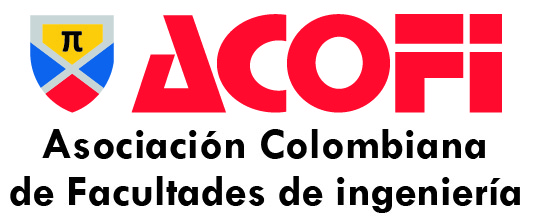PROPUESTA DE EVALUACIÓN DE HABILIDADES BLANDAS EN INGENIERÍA DE SOFTWARE A TRAVÉS DE PROYECTOS UNIVERSIDAD - EMPRESA
DOI:
https://doi.org/10.26507/rei.v10n19.549Palabras clave:
evaluación, proceso de enseñanza-aprendizaje, habilidades blandas, ingeniería de softwareResumen
La ingeniería de software conjuga aspectos técnicos que provienen de las ciencias de la computación con habilidades blandas como comunicación, negociación y trabajo en equipo para el desarrollo de productos de software de alta calidad. Por esta razón, es importante que su proceso de enseñanza-aprendizaje se oriente no sólo al desarrollo de habilidades técnicas sino también de habilidades blandas o sociales. En este contexto aparecen estrategias de enseñanza de ingeniería de software basadas en la generación de ambientes de colaboración inclusivos para los estudiantes en la ejecución de proyectos universidad-empresa. Sin embargo, los métodos de evaluación de las habilidades blandas como parte de las estrategias de enseñanza de ingeniería de software, son escasos. Por esta razón, en este artículo se plantea una propuesta de evaluación de habilidades blandas en la enseñanza de ingeniería de software cuando la ejecución de proyectos universidad-empresa es una de las estrategias pedagógicas seleccionadas por el docente.
Descargas
Tipo:
Artículo corto resultado de investigaciónReferencias bibliográficas
Alart, N. (2010). La evaluación competencial. Aula TIC. 30, 1-3.
Anaya, R. (2012). Una visión de la enseñanza de la ingeniería de software como apoyo al mejoramiento de las empresas de software. Revista Universidad EAFIT, 42(141), 60-76.
Barberá, E. & de Martín, E. (2009). Portafolio electrónico: aprender a evaluar el aprendizaje. Editorial UOC.
Biggs, J. & Tang, C. Teaching for Quality Learning at University. Maidenhead: McGraw-Hill and Open University Press.
Bull,C. , Whittle, J. , Cruickshank, L. (2013). Studios in software engineering education towards an evaluable model. In: International Conference of Software Engineering. (ICSE2013). San Francisco, USA.
Chen, C. Y., & Chong, P. P. (2011). Software engineering education: A study on conducting collaborative senior project development. Journal of systems and Software, 84(3), 479-491.
Garousi, V. (2011). Incorporating real-world industrial testing projects in software testing courses: Opportunities, challenges, and lessons learned. InSoftware Engineering Education and Training (CSEE&T), 2011 24th IEEE-CS Conference on (pp. 396-400). IEEE.
González-Morales, D., de Antonio, L. M. M., & García, J. L. R. (2011). Teaching “Soft” skills in software engineering. In Global Engineering Education Conference (EDUCON), 2011 IEEE (pp. 630-637). IEEE.
Hong-mei, S., & Rui-sheng, J. (2012). Research on case teaching of software development comprehensive practice based on project driven. Procedia Engineering, 29, 484-488.
IEEE Computer Society.(2004). Guide to the Software Engineering Body of Knowledge (SWEBOK), Version 3.0. Recuperado el 18 de febrero de 2015 de www.swebok.org.
Ilahi, M., Cheniti-Belcadhi, L., & Braham, R. (2014). Formal competence-based assessment: on closing the gap between academia and industry. In Proceedings of the Second International Conference on Technological Ecosystems for Enhancing Multiculturality (pp. 581-587). ACM.
Jia, Y. (2010). Improving software engineering courses with case study approach. In Computer Science and Education (ICCSE), 2010 5th International Conference on (pp. 1633-1636). IEEE.
Marzano, R. J., & Kendall, J. S. (Eds.). (2008). Designing and assessing educational objectives: Applying the new taxonomy. Corwin Press.
Pariata, M., & Montano, N. (2014). Software Factory, from professional environment to academic environment proposal to build competences through authentic activities in the context of software engineering. In Computing Conference (CLEI), 2014 XL Latin American (pp. 1-10). IEEE.
Penzenstadler, B., Mahaux, M., & Heymans, P. (2013). University meets industry: Calling in real stakeholders. In Software Engineering Education and Training (CSEE&T), 2013 IEEE 26th Conference on (pp. 1-10). IEEE.
Perrenoud, P. Diez nuevas competencias para enseñar. Invitación al viaje.(2004). España. Ed. Graó.
Potocki-Malicet, D. & Holmesland, M.T. (1999). The Evaluation of Teaching and Learning. European Journal of Education, 34(3), 299-312.
Pratt, K. & Pallof, R.M. (2000). Making the Transition: Helping Teachers to Teach Online. Recuperado el (13 de febrero de 2015) de http://eric.ed.gov/?id=ED452806.
Prikladnicki, R., Dittrich, Y. & Sharp, J. (2013) Cooperative and Human Aspects of Software Engineering. ACM SIGSOFT Software Engineering Notes, 38(5), 34-35.
Rychen, D.S. & Salganik, L. (2000). Definition and selection of key competences. The INES Compendium, Contributions from the INES Networks and Working Groups. OECD. pp. 61-74
.
Sanchez, J. L., González, C. S., & Alayon, S. (2011). Evaluation of transversal competences in the final year project in engineering. In EAEEIE Annual Conference (EAEEIE), 2011 Proceedings of the 22nd (pp. 1-5). IEEE.
Soska, A., Schroll-Decker, I., & Mottok, J. (2014). Implementation of practical exercises in software engineering education to improve the acquirement of functional and non-functional competences: A field report about project-based learning in software engineering. In Interactive Collaborative Learning (ICL), 2014 International Conference on (pp. 338-345). IEEE.
Thurner, V., Bottcher, A., & Kamper, A. (2014). Identifying base competencies as prerequisites for software engineering education. In Global Engineering Education Conference (EDUCON), 2014 IEEE (pp. 1069-1076). IEEE.
Vivar Quintana, A. M., González Rogado, A. B., Ramos Gavilán, A. B., Martín, I. R., Ascensión, M., Esteban, R. & Martín Izard, J. F. (2013). Application of rubric in learning assessment: a proposal of application for engineering students. In Proceedings of the First International Conference on Technological Ecosystem for Enhancing Multiculturality (pp. 441-446). ACM.
Descargas
Publicado
Cómo citar
Número
Sección
Licencia
Se autoriza la reproducción total o parcial de los documentos publicados en la Revista siempre y cuando se cite la fuente y el autor.
| Estadísticas de artículo | |
|---|---|
| Vistas de resúmenes | |
| Vistas de PDF | |
| Descargas de PDF | |
| Vistas de HTML | |
| Otras vistas | |









